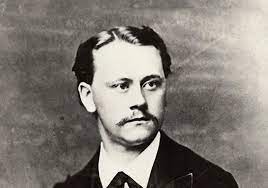Welcome to the world of Henri Duparc, a celebrated composer whose creations continue to captivate audiences around the globe. Born into a prosperous French family in 1848, Duparc's life was marked by both triumph and tragedy, ultimately leading to a unique musical legacy. In this blog, we delve into the fascinating biography of this enigmatic composer, exploring his early life, artistic development, notable works, and the enduring impact he has had on the world of classical music. Henri Duparc's biography is a tale of both brilliance and tragedy, illustrating the complexities of the creative process. His compositions, though few in number, exemplify his remarkable talent and artistic vision. Duparc's mélodies continue to enchant audiences, and his legacy as a composer remains an essential part of the classical music canon. As we explore the life and works of this enigmatic composer, we gain a deeper appreciation for the enduring power of music and the profound impact it can have on our lives.
Henri Duparc - Elegie
Eugène Marie Henri Fouques Duparc (21 January 1848 – 12 February 1933) was a French composer of the late Romantic period.
Son of Charles Fouques-Duparc and Amélie de Guaita. Henri Fouques-Duparc was born in Paris. He studied piano with César Franck at the Jesuit College in the Vaugirard district and became one of his first composition pupils. Following military service in the Franco-Prussian War, he married Ellen MacSwinney, from Scotland, on 9 November 1871. In the same year, he joined Saint-Saëns and Romain Bussine to found the Société Nationale de Musique.
Duparc is best known for his 17 mélodies ("art songs"), with texts by poets such as Baudelaire, Gautier, Leconte de Lisle and Goethe.
A mental illness, diagnosed at the time as "neurasthenia", caused him abruptly to cease composing at age 37, in 1885. He devoted himself to his family and his other passions, drawing and painting. But increasing vision loss after the turn of the century eventually led to total blindness. He destroyed most of his music, leaving fewer than 40 works to posterity. In a poignant letter about the destruction of his incomplete opera, dated 19 January 1922, to the composer Jean Cras, his close friend, Duparc wrote:
Après avoir vécu 25 ans dans un splendide rêve, toute idée de représentation m'était – je vous le répète – devenue odieuse. L'autre motif de cette destruction, que je ne regrette pas, c'est la complète transformation morale que Dieu a opéré en moi il y a 20 ans et qui en une seule minute a abolie toute ma vie passée. Dès lors, la Roussalka n'ayant aucun rapport avec ma vie nouvelle ne devait plus exister.
(Having lived for 25 years in a splendid dream, the whole idea of [musical] representation has become – I repeat to you – repugnant. The other reason for this destruction, which I do not regret, was the complete moral transformation that God imposed on me 20 years ago and which, in a single minute, obliterated all of my past life. Since then, [my opera] Roussalka, not having any connection with my new life, should no longer exist.)
He spent most of the rest of his life in La Tour-de-Peilz, near Vevey, Switzerland, and died in Mont-de-Marsan, in southwestern France, at age 85.
For more:
http://www.melhoresmusicasclassicas.blogspot.com

